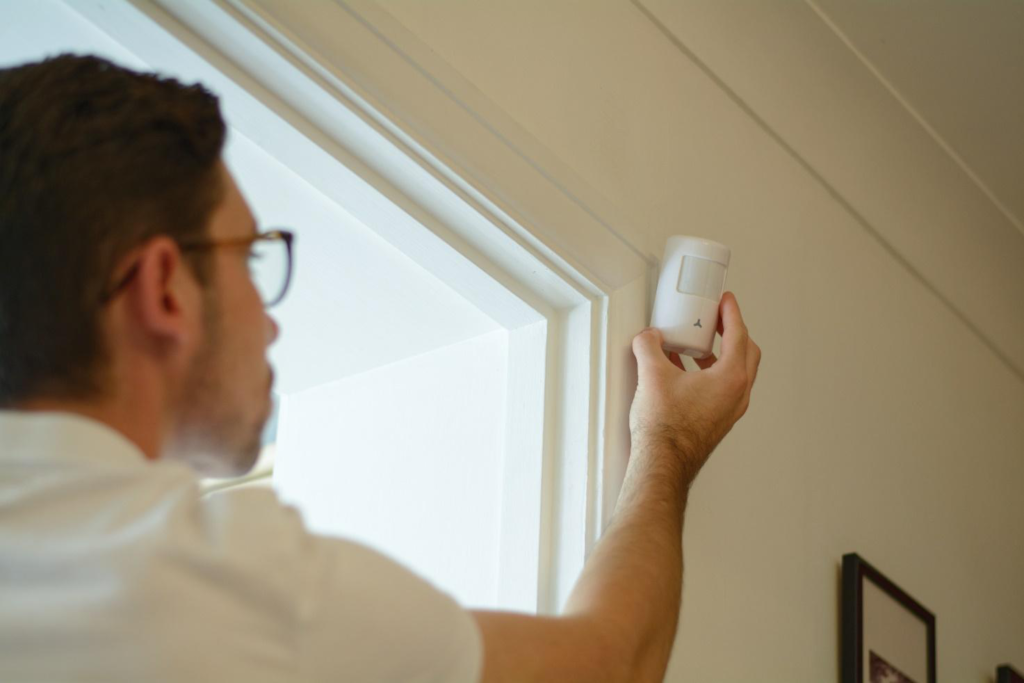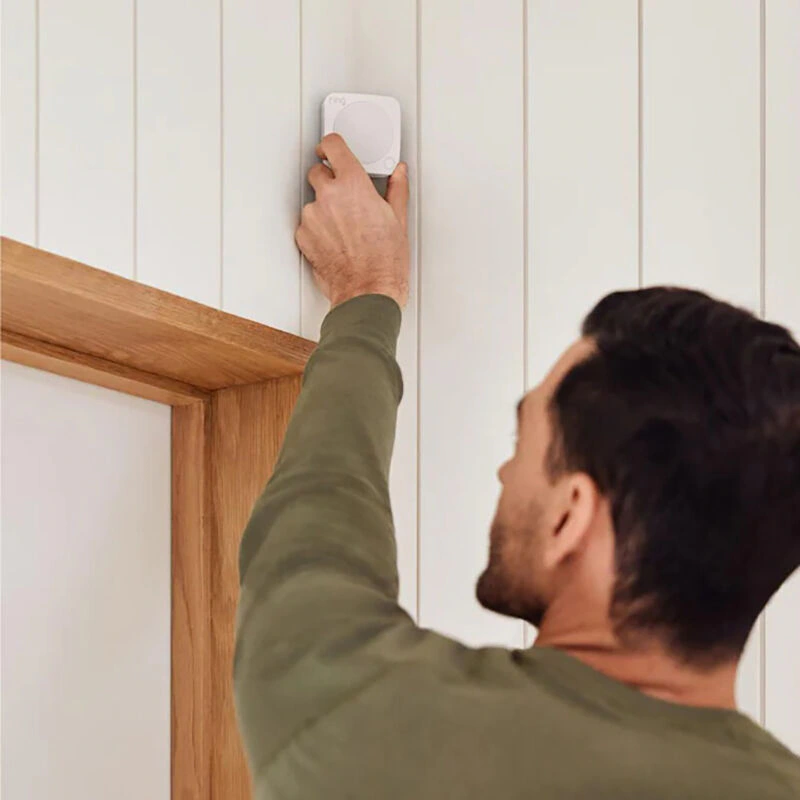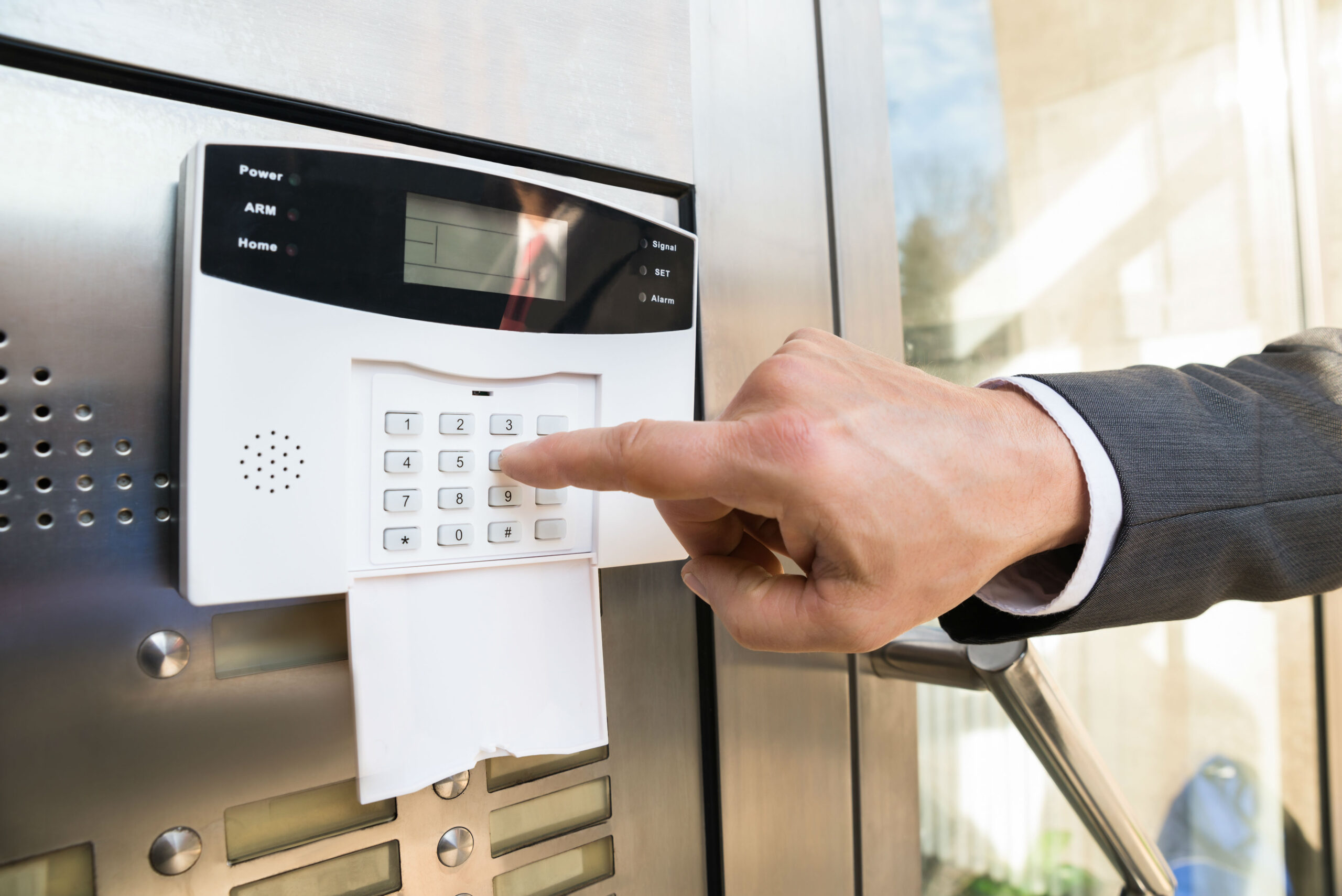It was a cold evening, and I was all comfy at home after a long day. As I relaxed, I started thinking about how safe my house was. Then, it hit me I didn’t really know how to set up my house alarm the right way. It’s a big part of keeping our homes secure, but I had no clue where to start.
If you’ve ever felt the same way, you’re in the right place. To set a house alarm, follow these steps
- Enter User Mode: Use a passcode or key fob to access the alarm menu.
- Set Entry and Exit Delays: Allow time to enter or exit without triggering alarms.
- Configure Sensor Zones: Define monitored areas (e.g., doors, windows).
- Program Emergency Contacts: Add contact info for notifications.
- Test the Alarm: Verify sensor functionality.
- Arm and Disarm: Choose “Away” when leaving and “Stay” when needed.
Why Do You Need a House Alarm?

A house alarm is your home’s first line of defense against intruders. But why do you need one? Well, let’s break it down. Your home is where you and your loved ones feel safe. It’s where you keep your valuables, create cherished memories, and unwind after a long day.
However, without a house alarm, your home could be vulnerable to burglaries and break-ins.
Imagine you’re away on vacation, and suddenly you receive an alert on your phone from your house alarm system. It’s detected suspicious activity at your front door. Thanks to this early warning, you can take action immediately, whether it’s calling the police or notifying a neighbor to check on your property. Without a house alarm, you might only discover the break-in hours later when you return home, and by then, it’s too late.
Moreover, house alarms aren’t just about deterring criminals. They also provide peace of mind. Knowing that your home is protected around the clock, whether you’re there or not, can significantly reduce anxiety and stress. It allows you to sleep better at night, knowing that you’ve taken steps to safeguard your family and your investments.
In summary, you need a house alarm to protect your home, your belongings, and your peace of mind. It’s a simple yet effective way to deter criminals and ensure that your home remains a safe haven for you and your loved ones.
Types of House Alarm Systems
When it comes to house alarm systems, there’s no one-size-fits-all solution. The world of home security offers a variety of options, each with its own advantages.
Wired Alarm Systems
These are the traditional stalwarts of home security. Wired systems are reliable and robust. They connect various components of your security system through physical wires. This means they’re not susceptible to wireless interference, making them a solid choice for dependable protection. However, installation can be more labor-intensive and may require professional help.
Wireless Alarm Systems
On the other hand, wireless alarm systems have gained popularity for their ease of installation. They use radio frequency signals to communicate between components, eliminating the need for extensive wiring. This makes them ideal for both new and existing homes, and you can often install them yourself. They’re also more flexible and can be easily expanded or upgraded.
Smart Home Security Systems
These systems take security to the next level by integrating with your smart home devices. You can control and monitor your security system remotely through your smartphone. This means you can arm or disarm your alarm, check security camera feeds, and receive alerts, all from the palm of your hand. They’re the choice for tech-savvy homeowners who want the convenience of modern technology.
Monitored Alarm Systems
With a monitored system, your house alarm is connected to a professional monitoring center. When an alarm is triggered, trained operators assess the situation and can dispatch emergency services if needed. This 24/7 protection ensures that help arrives swiftly in case of an emergency.
In short, choosing the right type of house alarm system depends on your specific needs and preferences. Consider factors like your home’s layout, your budget, and the level of convenience and control you desire.
What Equipment Do You Need for Your House Alarm System?
Selecting the right equipment for your house alarm system is like choosing the right tools for a job. It’s essential for the system to function effectively. Let’s take a closer look at the key components you’ll need:
Sensors: Sensors are the eyes and ears of your alarm system. They detect movement, sound, or other specific triggers and send signals to the control panel. The main types of sensors include motion sensors, door/window sensors, and glass break sensors. Depending on your home’s layout and vulnerability points, you’ll need the appropriate sensors to cover those areas.
Control Panel: Think of the control panel as the brain of your system. It’s where signals from sensors are processed, and decisions are made. Modern control panels often come with touchscreens and user-friendly interfaces, allowing you to arm or disarm the system and customize settings easily.
Alarms: Alarms are the vocal warning of your house alarm system. They’re designed to scare off intruders and alert you and your neighbors to the threat. Alarms can range from loud sirens to more discreet notifications through your smartphone or security company.
Security Cameras: Security cameras add an extra layer of protection by providing visual evidence of any security breaches. They’re especially useful for monitoring the exterior of your home and recording any suspicious activity. Many modern systems offer wireless cameras that can be easily integrated into your alarm setup.
Keypad or Key Fob: A keypad or key fob allows you to control your house alarm system manually. You can arm or disarm the system with a code or a button press. Keypads are typically mounted near entry points, while key fobs can be carried on your keychain for easy access.
Smart Home Integration: If you want to take your security to the next level, consider equipment that integrates with your smart home devices. This allows you to control your alarm system through voice commands or smartphone apps, making it more convenient and accessible.
When choosing equipment, it’s essential to consider your home’s layout and your specific security needs. A well-planned selection of equipment ensures that your house alarm system offers comprehensive protection.
How to Properly Install Your House Alarm System?
Installing a house alarm system might sound daunting, but it’s more accessible than you might think. Whether you prefer to do it yourself or hire a professional, the installation process can be straightforward.
Firstly, begin by selecting the type of house alarm system that suits your needs. Consider factors like your home’s size, layout, and your level of comfort with DIY installations. Some systems are designed for easy self-installation, while others may require professional assistance.
Once you’ve chosen your system, gather all the necessary equipment. This includes sensors, control panels, alarms, and any additional components you’ve selected, such as security cameras or keypads.
And, carefully plan where you’ll place your sensors. Entry points like doors and windows are crucial areas to cover. Motion sensors should be strategically placed to detect any movement within your home. Consider the layout of your home and the potential routes an intruder might take.
If you’re doing a DIY installation, follow the manufacturer’s instructions to install your sensors. This typically involves mounting them securely and ensuring they are aligned correctly. Wired systems will require drilling and routing wires, while wireless systems are generally easier to set up.
Furthermore, install the control panel in a central and easily accessible location. This is where you’ll arm and disarm your alarm system and receive alerts. Follow the instructions to connect it to your sensors and power source.
Before considering your installation complete, thoroughly test the system. Make sure all sensors are functioning correctly, and the control panel receives signals from each component. Test your alarms to ensure they sound as expected. This step is crucial for your peace of mind.
However, if you opted for professional installation, a trained technician will handle the setup for you. They will ensure all components are correctly placed and connected, and they’ll conduct thorough testing to guarantee your system’s reliability.
Remember that the installation process can vary depending on the type and brand of your house alarm system. Always follow the manufacturer’s instructions and guidelines provided in the user manual. If you’re unsure about any aspect of installation, don’t hesitate to seek professional assistance.
What Is the Best Way to Set Up Monitoring for Your House Alarm System?
So, you’ve installed your house alarm system, and it’s ready to protect your home. But what happens when it detects an intruder or a potential threat? That’s where monitoring comes into play.
Self-Monitoring: With self-monitoring, you take charge of overseeing your house alarm system. When an alarm is triggered, you receive notifications directly on your smartphone or email. This allows you to assess the situation and take appropriate action, whether it’s contacting the authorities or checking security camera feeds. Self-monitoring provides you with full control and is often more cost-effective, as it doesn’t involve monthly monitoring fees.
Professional Monitoring: Opting for professional monitoring means your house alarm system is connected to a 24/7 monitoring center. When an alarm goes off, trained operators at the monitoring center assess the situation and can dispatch emergency services if needed. This level of monitoring ensures rapid response times, even when you’re not available to act. However, it typically involves a monthly subscription fee.
Combination Monitoring: Some homeowners prefer a combination of self-monitoring and professional monitoring. In this setup, you receive alerts on your smartphone while also having the option to contact a monitoring center when necessary. It offers flexibility and added security, especially when you’re away from home.
The choice between self-monitoring and professional monitoring depends on your lifestyle, budget, and how involved you want to be in the security of your home. Many modern house alarm systems allow you to switch between these options, giving you the flexibility to choose what works best for you.
Why Is Regularly Testing Your House Alarm Crucial for Home Security?
Testing your house alarm is not just a one-time task; it’s a routine that ensures your system functions correctly when it matters most. Regular testing is a simple yet crucial step in maintaining the security of your home.
First and foremost, set a schedule for testing your house alarm system. It’s advisable to perform tests at least once a month to ensure everything is in working order. Mark it on your calendar or set reminders on your phone to stay consistent.
Before conducting a test, inform everyone in your household. Let them know when the test will happen so that they don’t mistake it for a real emergency. This prevents unnecessary panic.
Activate your house alarm system as you would in a real situation. If you have different modes (e.g., home mode and away mode), choose the appropriate one for the test.
Once the system is armed, trigger each sensor or alarm type one by one. For example, walk in front of motion sensors, open and close doors with door/window sensors, and activate panic buttons or key fobs. This will simulate various scenarios that could occur during a break-in.
Pay close attention to how your system responds. Check if alarms sound correctly, if notifications are sent to your smartphone or monitoring center, and if any security cameras capture the events as expected.
After completing the test, disarm your house alarm system to stop any alarms or notifications. Make sure to reset it to its normal operating mode.
At last, keep a record of your tests, noting the date and the results. If any issues arise during testing, document them and address them promptly.
In summary, testing your house alarm system helps you identify and resolve any problems before a real emergency occurs. It also familiarizes everyone in your household with the alarm’s operation, reducing the chances of false alarms due to user error. Remember that regular testing is a proactive step in ensuring the security and reliability of your system.
Troubleshooting Common Issues
While house alarm systems are designed to be reliable, they can occasionally encounter issues. Knowing how to troubleshoot common problems can save you time and frustration.
False alarms can be triggered by pets, drafts, or even user error. To address this issue, adjust the sensitivity of your motion sensors, ensure that doors and windows with sensors are properly closed, and educate household members on the correct operation of the system.
However, if a sensor isn’t working correctly, check for obstructions or damage. Clean sensors regularly to prevent dust or debris from interfering with their function. If a sensor is damaged, contact the manufacturer for a replacement.
In addition, if your control panel is unresponsive or displays errors, try resetting it. Consult the user manual for instructions on resetting the control panel to its default settings. If the issue persists, contact customer support for further assistance.
Many sensors and alarms rely on batteries. If you notice a low battery warning, replace the batteries promptly to ensure the continued operation of the device. Follow the manufacturer’s recommendations for battery types and replacement intervals.
Wireless systems can experience communication issues due to signal interference. Relocate the affected components or consider adding signal repeaters to extend the range of your system.
If you receive false notifications on your smartphone, check your system’s settings and notification preferences. Ensure that your sensors are correctly configured to avoid unnecessary alerts.
Manufacturers often release firmware updates to improve the performance and security of their devices. Check for updates regularly and install them as needed to keep your system up to date.
Remember that if you encounter a problem that you can’t resolve on your own, don’t hesitate to contact the manufacturer’s customer support or a professional technician. Timely troubleshooting and maintenance are essential for keeping your house alarm system in top-notch condition, ensuring it continues to protect your home effectively.
How Can You Perform Effective Maintenance for Your House Alarm System?

Maintaining your house alarm system is essential to keep it operating smoothly and effectively over the long term.
Periodically check all sensors and detectors for signs of damage, dust, or obstructions. Clean sensors as needed to ensure they function correctly. If you notice any issues, contact the manufacturer for guidance.
As mentioned earlier, conduct regular tests of your house alarm system to ensure all components are working correctly. This proactive approach can identify and address problems before they become serious.
Most sensors and alarms rely on batteries. Monitor the battery levels and replace them as recommended by the manufacturer. A low battery can lead to system malfunctions.
If you have keypad access to your alarm system, consider updating passcodes regularly. This enhances security and reduces the risk of unauthorized access.
If you have a wired system, periodically check the wiring for any loose connections or damage. Secure any loose wires and replace damaged ones to maintain proper connectivity.
Keep Emergency Contacts Updated: If you have professional monitoring services, ensure that your emergency contact information is up to date. This includes contact numbers for yourself and trusted individuals who can respond to alarms.
FAQ
Do you set house alarm at night?
Yes, many people set their house alarms at night for added security while they sleep. It helps protect against potential intruders and offers peace of mind.
Can I set my house alarm from my phone?
Absolutely! With modern smart home technology, you can set your house alarm from your phone using a dedicated app. It’s convenient and provides remote control.
Where do you set an alarm?
House alarms are typically set at entry points like doors and windows. Motion sensors can also be placed strategically to detect movement inside your home.
Do house alarms turn off automatically?
No, house alarms don’t turn off automatically. They will continue to sound until manually deactivated, ensuring that you’re aware of any potential security breaches.
How long does a house alarm last?
House alarms can last for many years with proper maintenance. Regular checks and battery replacements keep them in good working condition.
How long can an alarm sound?
The duration of the alarm sound can vary but is typically around 15 to 20 minutes. This discourages intruders and alerts neighbors or authorities.
How are house alarms triggered?
House alarms can be triggered by various events, including opening doors or windows, breaking glass, or detecting motion within the sensor’s range.
What controls the alarm?
The control panel of your house alarm system manages and controls the alarm. It receives signals from sensors and activates the alarm when necessary.
What are the basics of an alarm system?
The basics of an alarm system include sensors (for detecting events), a control panel (to process signals), and an alarm (to alert you and others).
Final words
Setting up a house alarm system is a vital step in safeguarding your home and loved ones. It’s not just about protecting your property; it’s about ensuring peace of mind. With the right equipment, proper installation, and regular maintenance, your house alarm can be a reliable guardian, ready to alert you to any potential threats.
Whether you choose a wired system, a wireless one, or a smart home integration, the key is to take action and prioritize your home’s security. So, stay safe, stay vigilant, and let your house alarm be your trusted partner in keeping your home secure.

